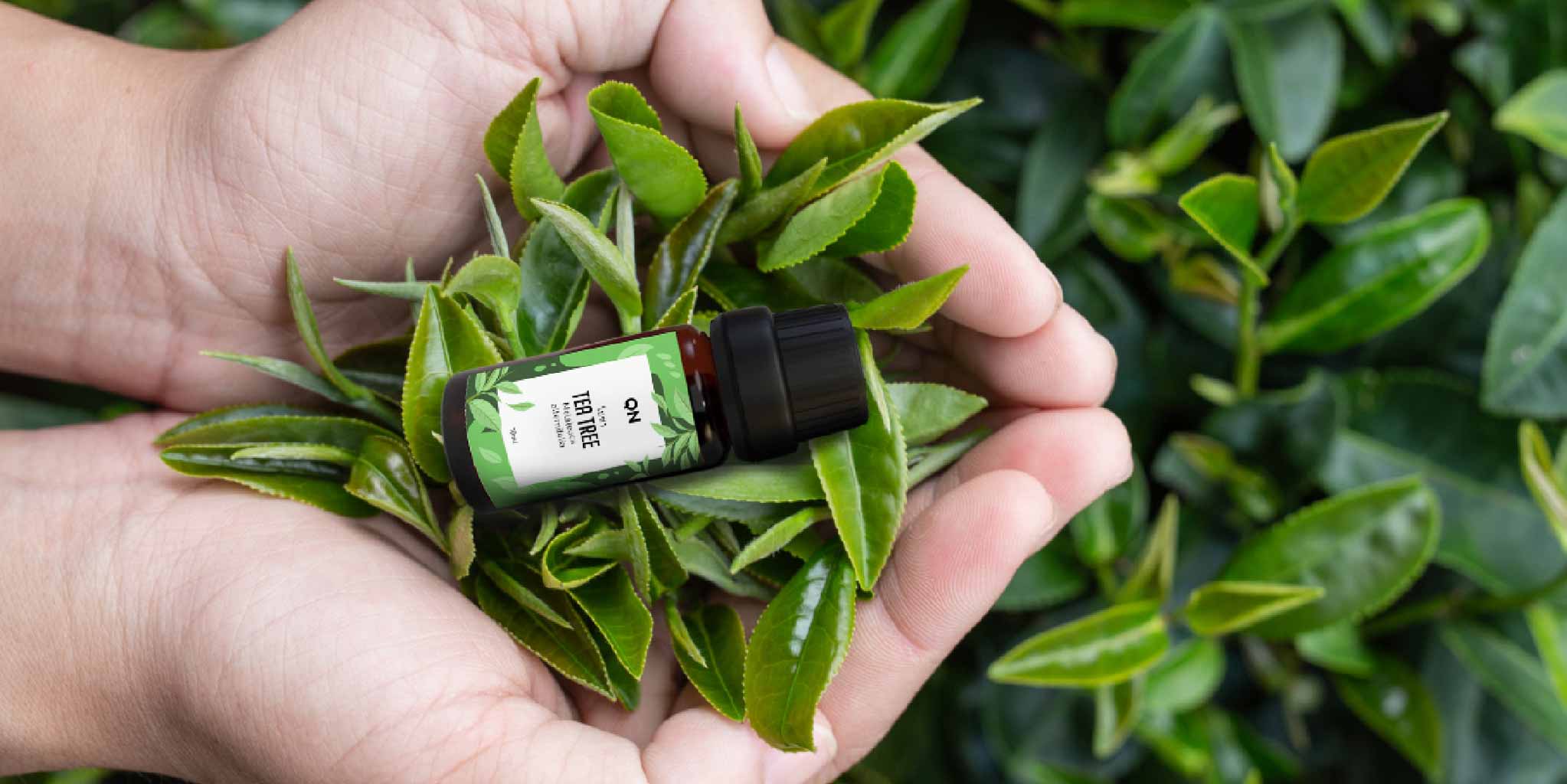We do shipping of our products WORLDWIDE.
ALL OUR PRODUCTS ARE PACKED BY VISUALLY HANDICAPPED
100% NATURAL PLANT SCENT ESSENTIAL OILS

Tea tree essential oil is renowned for its potent medicinal scent, antifungal, antiseptic, and skin-soothing effects. Aboriginal Australians have long used it to treat wounds and colds. Researchers are considering using it to treat staph, vaginal infections, and herpes. It is widely applied topically to treat skin conditions like acne, burns, dandruff, and athlete’s foot. When diffused or added to a bath, tea tree essential oil can open up the sinuses and lessen coughing. This product is great for cleaning surfaces in your home, curing small areas of mold, and helping with colds and skincare.
The skin-friendly essential oil tea tree oil can be used in place of conventional therapies.
Tea tree oil is a skincare product that helps to improve the appearance of the skin generally.
It may be beneficial for skin, hair, and nails as well. It can be found in deodorants, mouthwash, and insect repellents. Additionally, when applied topically, it improves the health and appearance of the skin.
Tea tree oil soothes and treats a number of skin issues, which helps to promote healthy skin. Use of tea tree oil should be cautious:
Tea tree oil reduces itching, which soothes dry skin irritation and itch. Additionally, it has been shown to be more successful at treating eczema than creams containing zinc oxide or clobetasol butyrate.
Apply a few drops of tea tree oil to the skin after combining it with a small amount of moisturizer or carrier oil.
As soon as you step out of the shower and at least once more throughout the day, apply this mixture to the troublesome regions.
Tea tree oil’s antimicrobial properties might contribute to its capacity to treat oily skin.
In a tiny 2016 study, participants who used sunscreen containing tea tree oil for 30 days noticed less oiliness.
Before using, incorporate a few drops of tea tree oil into your toner, moisturizer, or sunscreen. Bentonite clay and two drops of tea tree oil can be combined to make a mask.
Tea tree oil’s anti-inflammatory qualities make it very effective for easing itchy skin pain. It calms the skin and may aid in healing infections that cause itching.
Tea tree oil was shown to be useful in decreasing irritated eyes in a small 2012 trial. The subjects’ eyelids were rubbed with an ointment containing 5% tea tree oil. Sixteen of the twenty-four subjects entirely stopped scratching.
The remaining eight showed signs of progress.
Apply a few drops of tea tree oil to the skin several times a day after mixing it with a moisturizer or carrier oil.
The anti-inflammatory properties of tea tree oil aid in the reduction of skin pain and inflammation. Additionally, it helps to lessen swelling and redness. Studies have demonstrated that tree oil can soothe inflamed skin from nickel hypersensitivity.
In this study, tea tree oil was given topically to the skin. Before applying it to the skin, it is typically advised to dilute it with carrier oil.
Massage the affected area several times daily using carrier oil or moisturizer and one drop of tea tree oil.
Healing from Cuts, Infections, and Wounds Tea tree oil works well to treat wounds because of its antibacterial properties.
According to 2013 research, tea tree oil helps the healing of wounds brought on by microorganisms.
Nine out of ten people who took tea tree oil in addition to conventional treatment experienced a quicker recovery time than those who only received traditional therapy.
Utilize a wound ointment cream with one drop of tea tree oil as needed throughout the day.
Tea tree oil might help you eliminate dandruff by cleaning your hair of chemicals and dead skin cells. Tea tree oil can keep your hair healthy and moist and help it grow correctly.
How to use:
Massage it into your head and hair for a few minutes before you rinse it out. After that, use a conditioner with tea tree oil.
Tea tree oil is a well-liked alternative to other acne treatments because of its anti-inflammatory and antibacterial properties.
It is intended to lessen redness, edema, and inflammation. Additionally, it might help to lessen and prevent acne scarring, giving you clear, smooth skin.
To use, combine two ounces of witch hazel with three drops of tea tree oil and stir thoroughly. Use it as a toner all day long. Additionally, tea tree oil can be discovered in moisturizers, spot treatments, and face cleansers.
There isn’t much scientific evidence to back up the usage of tea tree oil for psoriasis. Anecdotal data shows, however, that tea tree oil may help with psoriasis symptoms, including infection and inflammation, while also improving immunity.
How to apply: Using a tiny quantity of carrier oil, dilute 1 to 2 drops of tea tree oil. Apply it to the afflicted region several times a day, gently.
Because the quality of tea tree oil varies, it’s critical to get an oil that is 100% natural and free of additives. Whenever possible, choose organic tea tree oil from trustworthy companies.
On the bottle, the Latin name Melaleuca alternifolia, as well as the country of origin, should be written. Look for oils with a terpinene content of 10-40%, which is the major preservative in tea tree oil.
After a few days of constant application, Tea Tree Oil should start to relieve symptoms. It may take some time to completely recover, depending on the circumstances.
You have the option of continuing to use tea tree oil to avoid recurrence. To minimize additional irritation, those interested in utilizing tea tree oil should first do an allergic skin patch test and then carefully dilute the tea tree oil.
You may also purchase tea-infused items.
Recent Comments